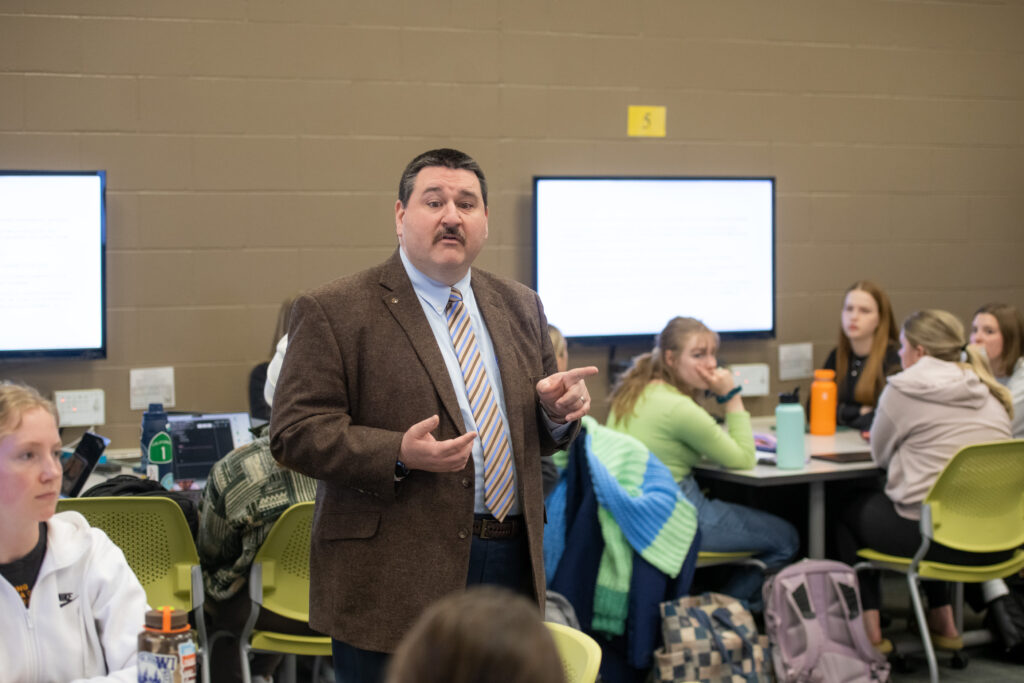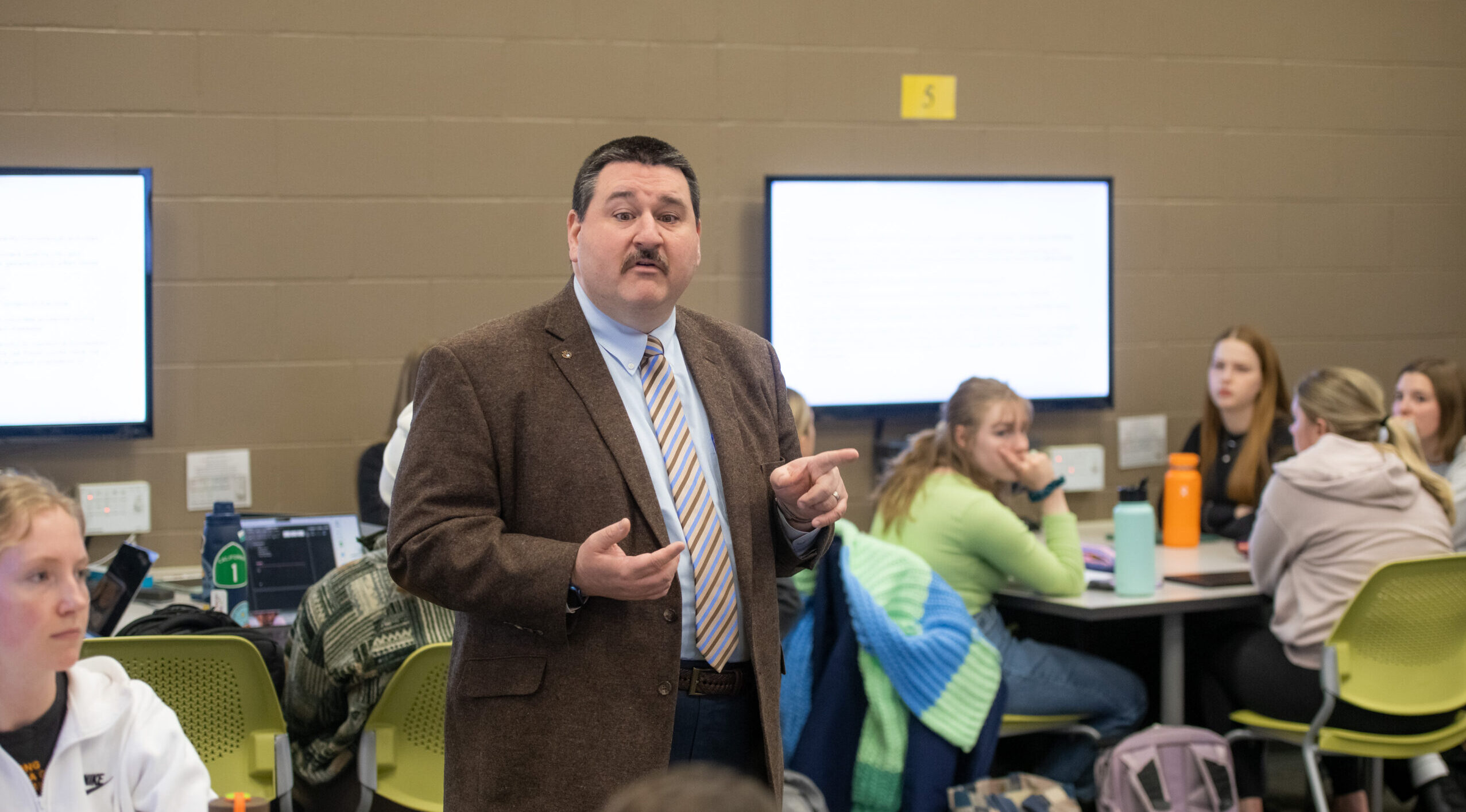
Almost every major and discipline has a connection to clinical research, according to Dr. Andrew Calvin with Mayo Clinic Health System.
“Students at UW-Eau Claire are at a really interesting time and place where — if they want to — I think they can really positively shape the direction of our country and our world,” Calvin says. “As it relates to public health, epidemiology and medical care, it touches on every discipline.”
Calvin, a cardiologist with Mayo Clinic Health System, is offering Honors students at UW-Eau Claire a one-of-a-kind course, Introduction to Clinical Research, which exposes them to the language and concepts of clinical research.
He credits the UW-Eau Claire and Mayo Clinic Health System collaborative relationship as the inspiration to create a course of this nature. The two institutions have historically collaborated on a number of fronts, with one aspect being the Research Innovation Council. Five UW-Eau Claire professors and five Mayo Clinic Health System staff — one of whom is Calvin — make up the council.
“Mayo and UW-Eau Claire have this remarkable relationship,” Calvin says. “It’s been codified in our master, collaborative research agreement.”
This agreement, covering education, research and patient care, has allowed Mayo Clinic Health System faculty and UW-Eau Claire students alike to take their research and education one step further.
“Our patients in western Wisconsin, and the upper Midwest, need a workforce of the future to take care of them, and the university is a major source of future employees and health care workers,” Calvin says.
While the course is geared to all undergraduate students, it is tailored for first- and second-year students. Calvin emphasized that exposing students to the language and concepts of the field early on, opens the door for clinically oriented student research they can pursue throughout their collegiate careers.
Sandra Prickett, a senior studying biochemistry and molecular biology, says a course of this nature is essential for “scientists-in-training.” It gives students an opportunity to witness how their work can directly improve someone’s life, she says.
This was a part of the mindset that went into creating the course; it was developed out of conversations among professionals involved in education research, UW-Eau Claire faculty and staff, and medical experts, Calvin says. They have the shared goal of “kick-starting” clinical research among undergraduate students.
They asked the greater question, “How do we generate more people at the undergraduate level and who are going to be able to engage successfully in biomedical research and clinical research?”
Calvin adapted the course material so students at the undergraduate level can interface with it, he says. Part of the benefit of this course being offered through the Honors program is that it allows for greater flexibility and opens it up to students in all fields of study.
The ability to adapt the course to an undergraduate level has allowed students to “let loose with a train of brilliant ideas,” Calvin says. He mentioned that the larger concepts and ideas that students draw on are often the same as what he sees in the professional world. Calvin noted that what makes him passionate about this course, and teaching in general, is interaction with students.
The course content is designed to give students exposure to a plethora of perspectives on clinical research; lectures are given by both faculty from Mayo Clinic Health System and UW-Eau Claire. An important aspect of the course is created for students to meet and interact with professionals involved in a diverse array of clinical research.
“I want students to be able to make connections with actual, real-life clinical researchers and to appreciate what they do, and why they do it,” Calvin says.
Prickett echoed the same sentiments, saying she was thankful to be exposed to these ideas at an undergraduate level and be a part of conversations surrounding her future career so she can better understand the implications of clinical research.
Calvin stated that the idea of giving undergraduates exposure to broader concepts is not something unique to his course — it’s something that is present throughout the university, in some capacity.
Their exposure to interdisciplinary ideas allows them to apply these concepts in class and learn to express ideas using the language of clinical research, ultimately ushering in greater success and encouraging students to pursue more opportunities as both producers and consumers of clinical research.
“I want students to be able to understand how clinical research is thought about, how it is conceived and how it is operationalized,” Calvin says. “Even if what they end up doing has very little clinical research, their lives are going to be touched by it.”
Introduction to Clinical Research is shaping the minds of tomorrow; it is a greater piece of the puzzle in providing the Midwest with a well-equipped workforce and exposing the next generation of young professionals to how their future careers and lives will be influenced by clinical research.
Written by Rosa Gómez
Link to original story: https://www.uwec.edu/news/news/mayo-clinic-health-system-cardiologist-teaches-one-of-a-kind-course-to-uw-eau-claire-honors-students-5689/



